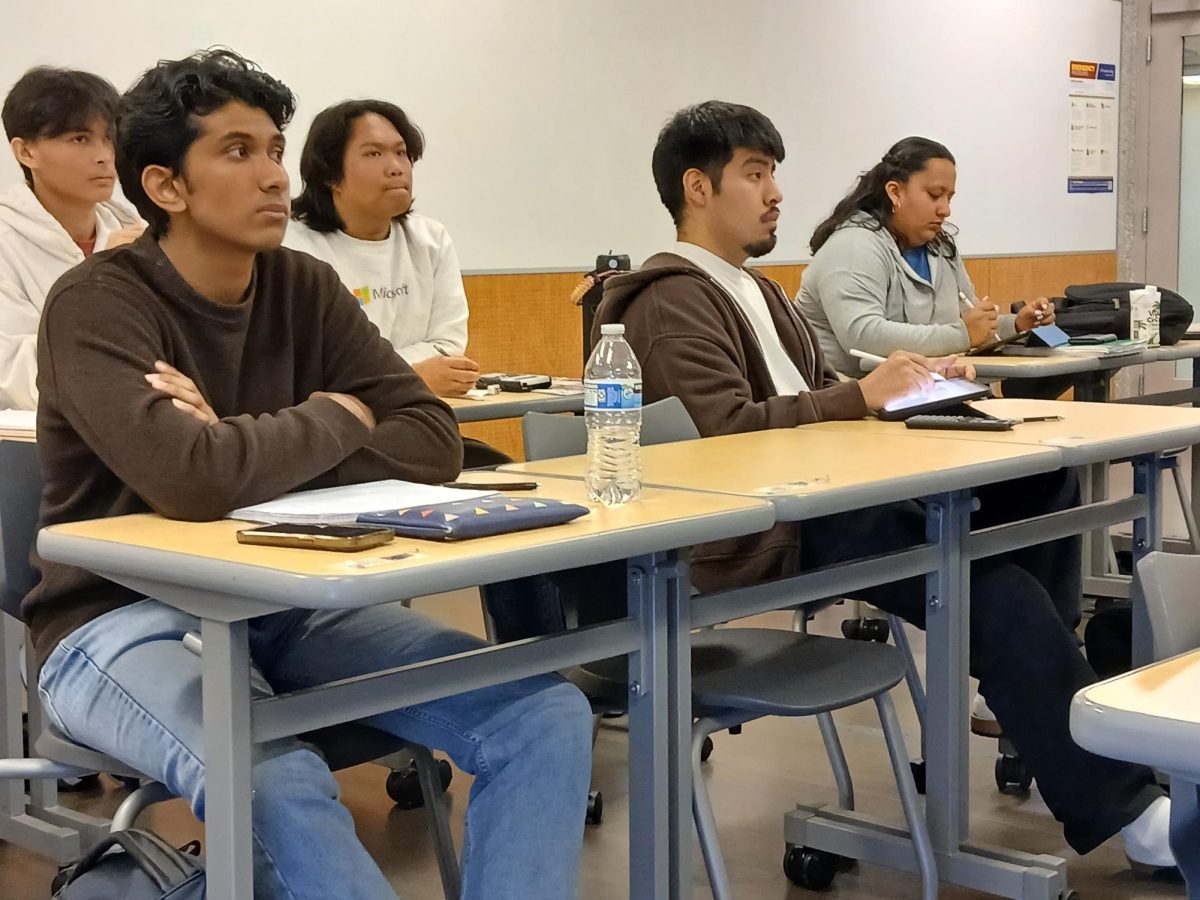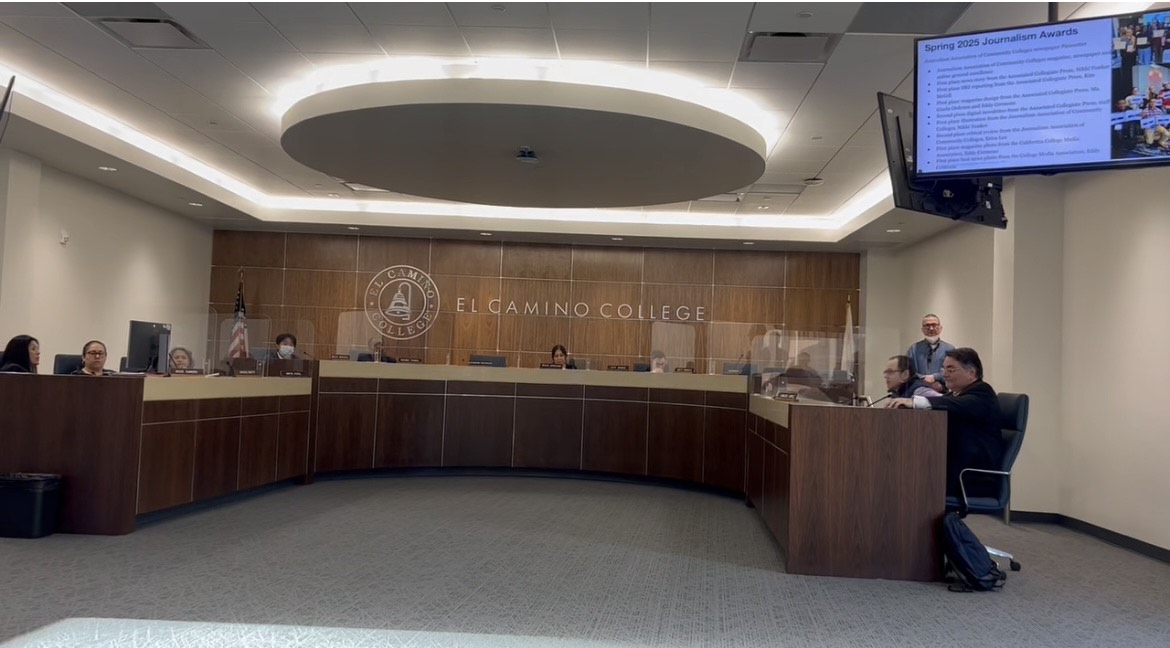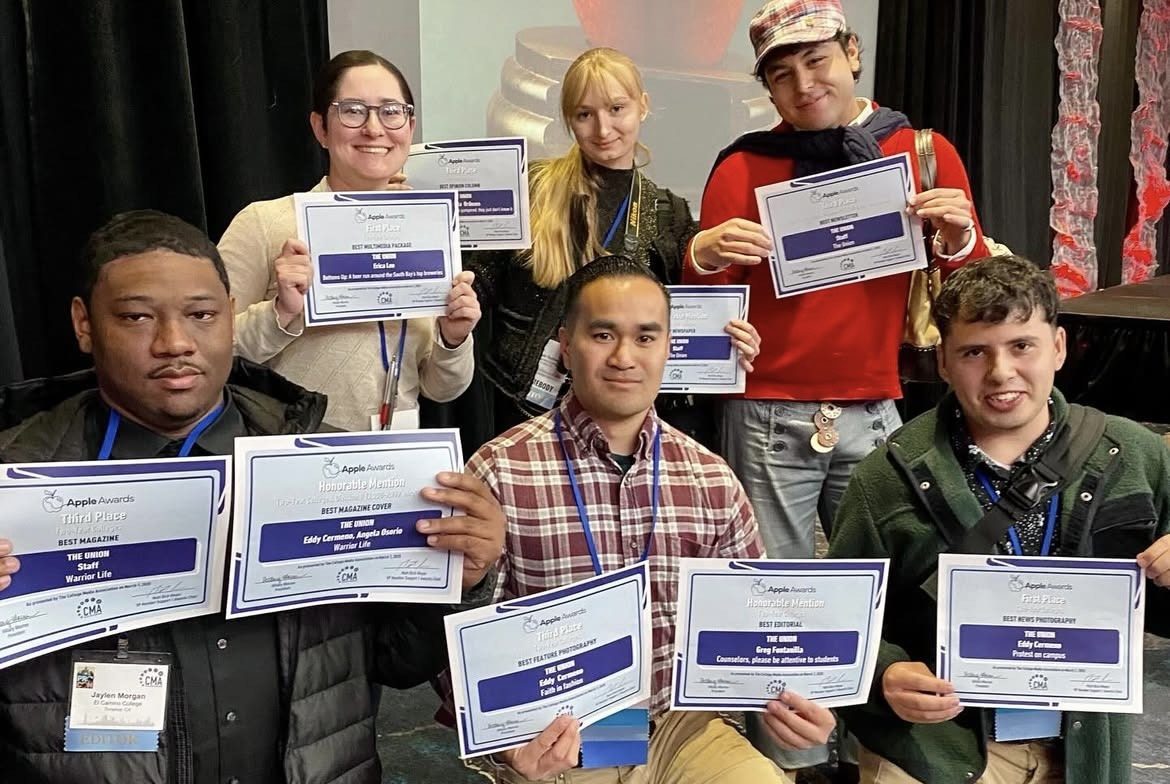Jurors found both the owner and manager of a marijuana dispensary shop guilty of first-degree murder for killing an El Camino College student.
VIP Collective LA owner Weijia Peng and manager Ethan Astaphan were convicted on Monday, Feb. 26 of killing El Camino student and dispensary employee Juan Hernandez on Sept. 22, 2020.
Peng was also found responsible for the use of a deadly weapon, using a syringe containing ketamine.
After the verdict was read, Juan Hernandez’s mother Yajaira Hernandez told The Union, “Sadly there are no winners. I lost Juan and [Peng and Astaphan] lost their freedom. My only comfort is that they were caught.”
Sentencing is scheduled for Thursday, April 25. Superior Court Judge Renee Korn presided over the reading of the verdict in Department 117 on the 11th floor of Clara Shortridge Foltz Criminal Justice Center in Downtown Los Angeles.
Larson Hahm, the L.A. County public defender who represented Astaphan, told The Union he will appeal the decision due in part to Judge Mark Hanasono’s refusal on Feb. 22 to include voluntary manslaughter as an option to the jury for either defendant.
Hahm argued the prosecution had not proven Astaphan’s intent to kill.
“The judge should have let the jury decide,” Hahm said.
Ronald Hedding, private defense counsel for Peng, also asked last week for voluntary manslaughter and voluntary intoxication instructions, arguing Peng acted out of anger and that he had been using OxyContin for months causing anger and mood swings.
Hedding told The Union on Feb. 22 that the judge’s refusal to give those instructions could be raised on appeal.
All parties agreed as to the authenticity of the evidence presented, including accurate tracking of cell phone records, WhatsApp messages and recovered digital video recordings and images.
In his closing arguments on Thursday, Feb. 22 and Friday, Feb. 23, Los Angeles County Assistant District Attorney Habib Balian said Peng’s and Astaphan’s actions were “cold, deliberate, calculated, vicious.”
Balian told the jury the defense would argue that Peng and Astaphan didn’t mean to kill Hernandez.
“If this is something that went wrong, in 188 pages of WhatsApp messages [between Peng and Astaphan], why is there not one text ‘Dude, why’d you choke him out? You weren’t supposed to do that.’ or ‘Dude, why’d you inject him with ketamine?’” Balian said.
Over three days, Peng’s former girlfriend Sonita Heng, 23, of San Diego, testified that Peng spoke for weeks about his suspicions of employees stealing from the dispensary.
On the day of Hernandez’s death, Heng said she overheard Peng telling Astaphan, “We’re gonna get rid of him.”
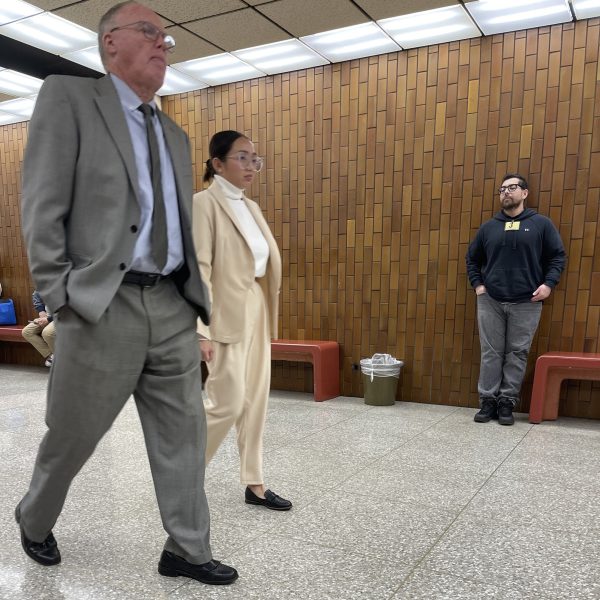
In their cross-examination, both defense attorneys argued Heng had reason to lie: to receive time served for the month she was detained in jail and probation instead of the three years in state prison she faced when charged as an accomplice to murder.
Balian said in his closing argument Heng’s testimony was corroborated by the evidence including WhatsApp messages, recovered DVR videos with dates and timestamps and the finding of ketamine in Hernandez’s brain.
Hahm called the only defense witness, Astaphan’s older sister Stephanie Astaphan.
“He is not a person who engages in violence,” she said of her younger brother. “I know his values. I know his heart. He confides in me. I know his character to be that of a good man.”
In his closing arguments on Friday, Feb. 23, Hahm urged the jury to consider that murdering Hernandez would not get money back if Peng and Astaphan’s main motive was to address suspected theft of the shop’s income or marijuana.
He pointed to a WhatsApp message in which Astaphan wrote that any plan had to “make cents to make sense.”
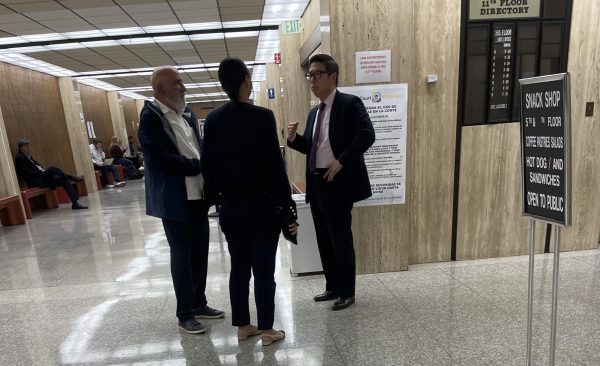
Hahm also said if the intention was to murder Hernandez and dump his body in the desert, they wouldn’t have attacked him in the dispensary in full view of the security cameras and with other employees having left only minutes before.
“The prosecution would have you believe that a young, skinny Chinese guy from New York, his 80-pound girlfriend and his Caribbean friend whose dream was to own a car repair shop, living in a two-bedroom apartment in the suburbs with no criminal records, represented a ‘symphony’ of killers – cold-blooded, calculated killers,” Hahm said.
In his rebuttal to defense closing arguments on Friday, Feb. 23, Los Angeles County Assistant District Attorney Ethan Milius argued that any one component of the evidence presented would have been enough to convict the defendants of first or second-degree murder. But the totality of the evidence presented – along with Heng’s testimony – was overwhelming.
“Our lives are a series of decisions, crossroads,” Milius said.
He again showed the jury hundreds of WhatsApp messages between Peng and Astaphan and argued that their actions were planned.
“The decision to murder started three days before, not within seconds in the dispensary,” Milius said.
When Peng and Astaphan entered the dispensary on the night of Sept. 22, 2020, Milius said “They undoubtedly looked [Juan Hernandez] in the eye. They saw a 21-year-old kid, and they disguised their purpose.”
Milius said they didn’t hesitate, step outside and reconsider their earlier decisions. Peng didn’t try to pull Astaphan off Hernandez as he pinned him to the floor.
“They had already made a decision to murder Juan,” he said.
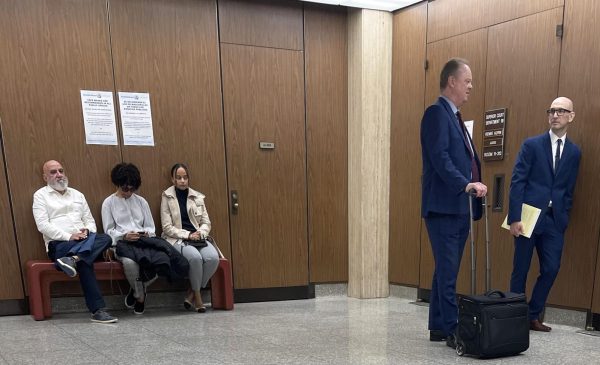
Astaphan’s mother, father and sister traveled from Dominica and Florida to attend each day of the trial, while his wife also attended most days. Peng’s mother and sister who live in Flushing, Queens, New York were not in court.
“I’ve never been through anything like this,” Astaphan’s father told The Union. “All the families are suffering.”
The Union made repeated attempts to interview Peng, Astaphan and Astaphan’s family. They declined opportunities to comment further.



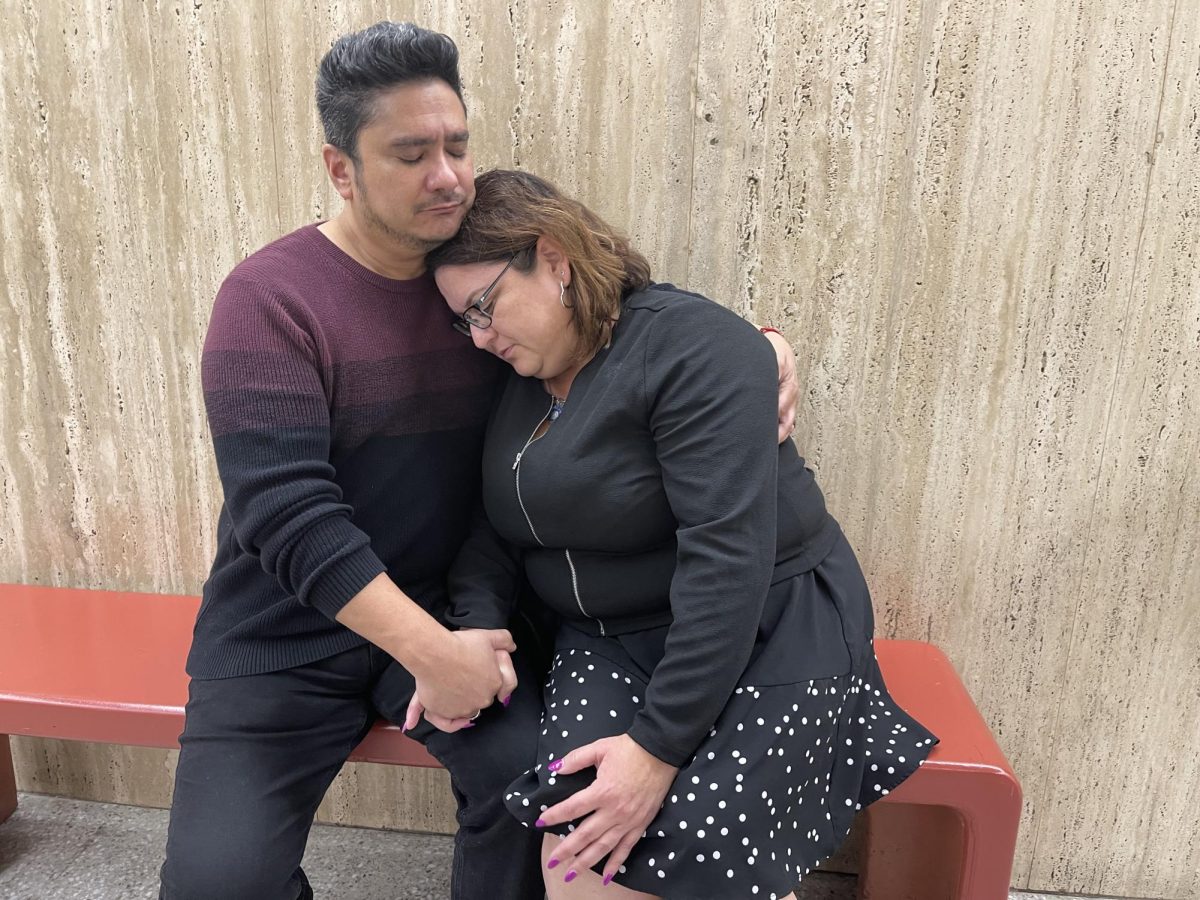

![Physics and astronomy professor Susan Stolovy presents astronomical news and updates to attendees at the first planetarium show of the semester at El Camino College on Friday, March 28. Prior to becoming a professor at ECC, Stolovy completed her doctorate in physics and worked as an astrophysicist for NASA and the California Institute of Technology on spacecraft missions. "[I'm] still very tuned into what's going on in the world of research as well, and I hope to bring a little bit of my experience into the classroom," Stolovy said. (Nikki Yunker | The Union)](https://eccunion.com/wp-content/uploads/2025/03/planetarium-Made-with-Clipchamp-3-frame-at-0m28s-1200x675.jpg)
